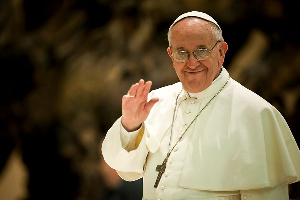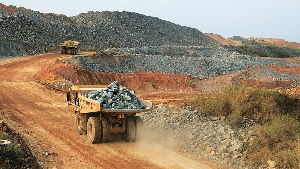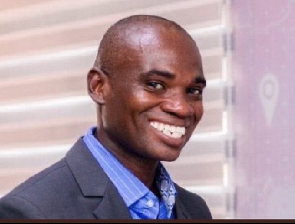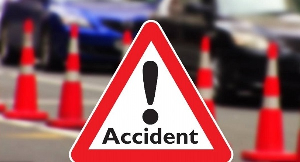In a few weeks’ time, Ghana will be celebrating 60th years of nationhood.
On 6th March 1957, an independent country, Ghana, emerged from what was then the Gold Coast.
The new nation, Ghana adopted the motto: Freedom and Justice.
These words could well have been a paraphrasing of the United States Declaration of Independence which states: “We hold these truths to be self-evident, that all men are created equal, that they are endowed by their Creator with certain unalienable Rights, that among these are Life, Liberty and the pursuit of Happiness”.
Freedom and Justice at independence meant that all Ghanaians – men, women, old and young – have the right to enjoy life, liberty and the opportunity to pursue happiness as they chose and within the laws of Ghana.
After the euphoria of independence, modern Ghana took a depressing and despairing trip through various wildernesses and valleys with only a few bright hills of progress and hope along this sad journey.
The 60 years following independence has been full of ups and downs with the people of Ghana yet to realise their aspirations and enjoy the expected fruits of independence.
At his inauguration on 7th January 2017, His Excellency the President, Nana Addo Dankwa Akufo-Addo provided profound food for thought when, he quoted the founding father of modern Ghana thus: “Ghana’s first President, Kwame Nkrumah, Osagyefo, said at the end of 1957, the year of our independence: “We shall measure our progress by the happiness which our people take in being able to manage their own affairs.”
Sixty years on, can we genuinely say that we have made progress?
Do our people have happiness in the way we have managed our own affairs?
Are Ghanaians free and do they have justice? Are we free from poverty, ignorance and disease?
Is the national cake justly distributed with equity and fairness as cardinal principles?
Are we free from the anxieties that come from the lack of basic social amenities and infrastructure including stable electricity, regular supply of potable water and access to decent toilets and places of sanitation?
Are we free to send our children to school knowing that at the end of their exertions to obtain qualifications there will be jobs for them to do?
Are we free to dare dream that our children and our children’s children will live in a safe, peaceful and prosperous country where their hard work and God-given abilities will enable them create a better future for their children?
Can we even begin to glimpse that utopia where justice for all will be a reality and where the criminal and civil justice system will treat everyone equally without fear or favour affection or ill-will?
Ghana can indeed be a paradise our President is right when he said: “There should be no higher praise than to be able to say I AM A GHANAIAN”.
But what does it mean to be a Ghanaian?
His Excellency Nana Addo Dankwa Akufo-Addo has already started the debate on Ghanaian-ness when he called on all Ghanaians to join in defining what a Ghanaian OUGHT to mean.
He also proceeded to give us his views and vision of that being a Ghanaian COULD mean.
He states: “Being a Ghanaian must stand for something more than the holder of a birth certificate or a certain passport. Being a Ghanaian must put certain responsibilities on each one of us. Calling yourself a Ghanaian must mean you have signed up to a certain definable code and conduct. Being a Ghanaian puts an obligation on each one of us to work at building a fair, prosperous and happy nation. And calling yourself a Ghanaian must mean we look out for each other”.
The President has spoken and his words once again echo the motto of Ghana: Freedom and Justice.
Being a Ghanaian puts an obligation on each one of us to “work at building a FAIR, PROSPEROUS and HAPPY nation!”
This is an arduous task but it can be done.
It come be done if we are committed and it can be done if we remember that Freedom and Justice are mere slogans unless we give meaning to those words by our actions, our deeds and our attitudes.
Isn’t it time for churches and mosques, bishops and imams, chiefs and chieftains, journalists and lecturers, professors and publicans alike to put their shoulders to the wheel and work towards building a fair, prosperous and happy nation?
A nation to which we can all be proud of? A charge to keep we have as Ghanaians. A God to glorify.
So, let us start rebuilding the new Ghana by practising fairness wherever we are in our country.
It is time to stop cheating one another by jumping queues, paying bribes or otherwise “cheating the system” or outsmarting one another in words or deeds as we are often wont to do.
It is time to start giving genuine respect one to another knowing that we are all one people and that under the eyes of God Almighty, we are all equal – daughters and sons of the Most High. Let workers work hard and let employers pay fair wages.
Freedom and Justice: whose freedom and what kind of justice?
I believe that there should and I am certain there can be freedom for all and justice for all.
However, these can only occur if we are willing to be fair to each other and to work together to build a modern, prosperous, open and caring society.
This is the only way to give meaning to the words of Dr Kwame Nkrumah and to give effect to the deeply profound inaugural address of President Nana Addo Dankwa Akufo-Addo.
Let the new Ghana arise and let all Ghanaians sacrifice together, pray together and work together to build a FAIR, PROSPEROUS AND HAPPY NATION. God bless our homeland Ghana!
Opinions of Wednesday, 18 January 2017
Columnist: Prof Alex Nii Oto Dodoo, University of Ghana





![Fatawu Issahaku [L] and Jordan Ayew Fatawu Issahaku [L] and Jordan Ayew](https://cdn.ghanaweb.com/imagelib/pics/718/71828066.295.jpg)









